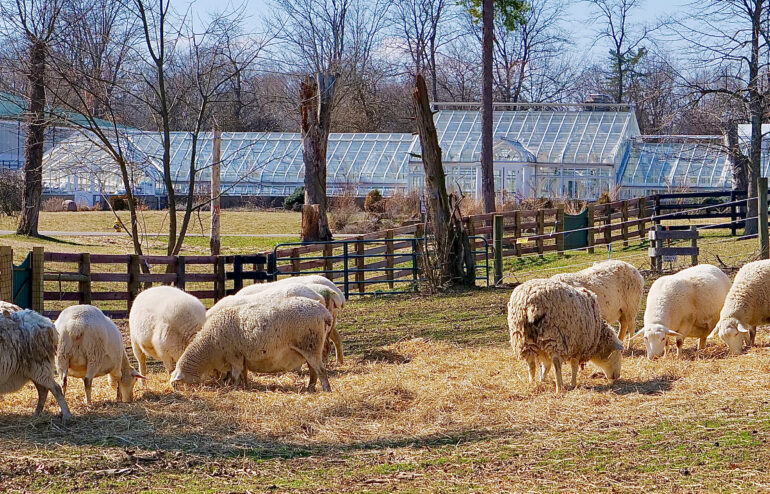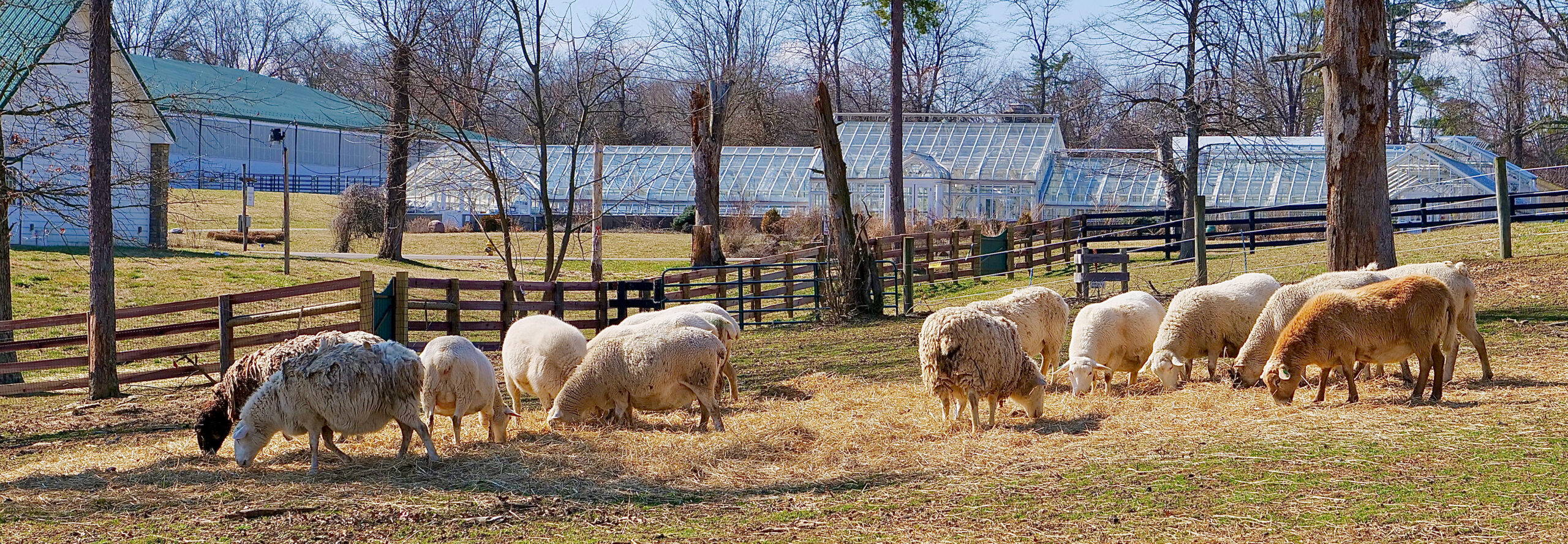
Around Greenacres - Winter 2024
Propagation of Spring Wildflowers
This winter Greenacres partnered with Northern Kentucky University to study spring wildflower propagation, growing 9 species of native spring wildflowers in a greenhouse, hoop house, and outside. Some of the species planted include Virginia bluebells, Dutchman’s breeches, bellwort, and large-flowered trillium. The plants will grow in their respective locations until dormancy and then half of the plants will be transplanted to Greenacres woods. The other half will stay in their current growing environment and be transplanted in 2025. The experiment is being replicated at the Cincinnati Nature Center and Northern Kentucky University. “Having a better understanding of how to repopulate spring ephemerals in our woodlands will provide much-needed resources for our pollinators in the spring, allowing them to flourish year-round. More native pollinators will benefit our entire region!” says Principle Investigator Dr. Kristy Hopfensperger. The results of this study will be used to inform land managers and conservationists about the best protocols for propagating these species on-site.
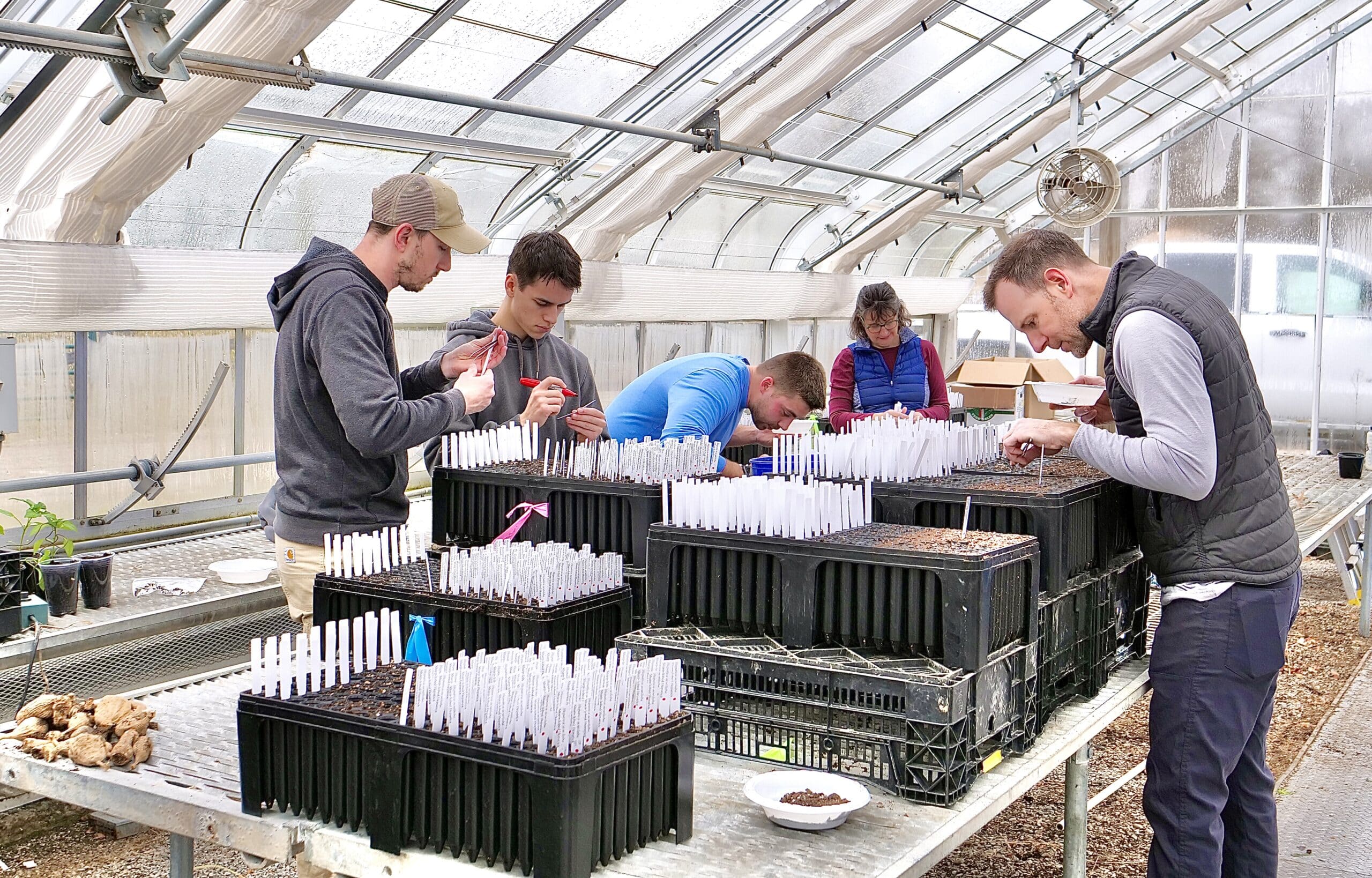
“Having a better understanding of how to repopulate spring ephemerals in our woodlands will provide much needed resources for our pollinators in the spring, allowing them to flourish year-round. More native pollinators will benefit our entire region!”
– Dr. Kristy Hopfensperger, Principle Investigator
Vermicomposting at Michaela Farm
There were over a thousand new additions to our Indiana farm in February. They arrived in the mail and settled into their new home at Michaela Farm in less than 24 hours. They are Eisenia fetida and Eisenia hortensis, more commonly known as red wigglers and red European nightcrawlers. Yep, you guessed it…worms. Thousands of them!
Red wigglers and red European nightcrawlers are both excellent composters. The red wiggler is more of a surface feeder, reproduces quicker, and prefers warmer temperatures. The red European nightcrawler is a larger worm, tends to burrow down deeper than the red wiggler, and tolerates cooler temperatures.
Vermicomposting is the process of using worms to compost kitchen scraps. The variety and amount of microbes are greater than that of regular compost because the presence of worms encourages more microorganisms to thrive, improving soil fertility biologically, chemically, and physically.
Vermicompost can be added to any potting mix for planting indoor plants or seedlings that will go into your garden. You can also add a bit of vermicompost to your garden soil. It is nutrient-dense, so a little goes a long way. It can also be made into a drench or tea for watering plants, used as a foliar spray, or for soaking transplants before they go out to the garden.
We are very excited to have these wiggly workers at the farm, helping us turn our vegetable scraps into nutrient-dense compost that will be used to continue to improve the health of the soil at Michaela Farm.
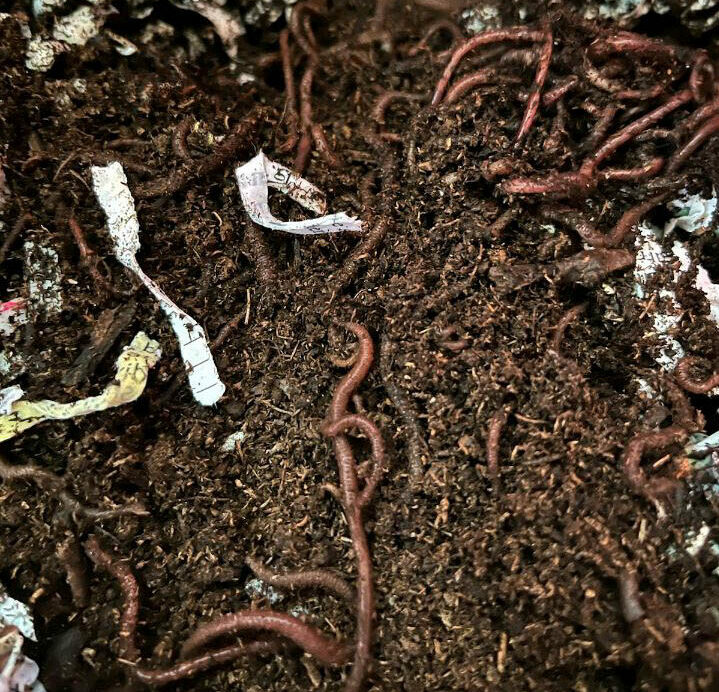
Winter Bale Grazing
Bale grazing is a strategic winter-feeding method we embrace at Greenacres, designed to optimize pasture health and soil fertility. Our livestock team locally sources hay and places the bales in our pastures, rotating animal access using temporary electric fencing, to allow our cattle and sheep access to 1 or 2-day allocations. A full rotation through a bale grazing field typically takes 2 to 3 weeks, giving each block 12 to 20 days of rest between grazing events. This rest period is beneficial for pasture recovery, soil health, and even distribution of nutrients across the field. As the animals move from block to block, they disperse bale residue and uneaten hay across the field.
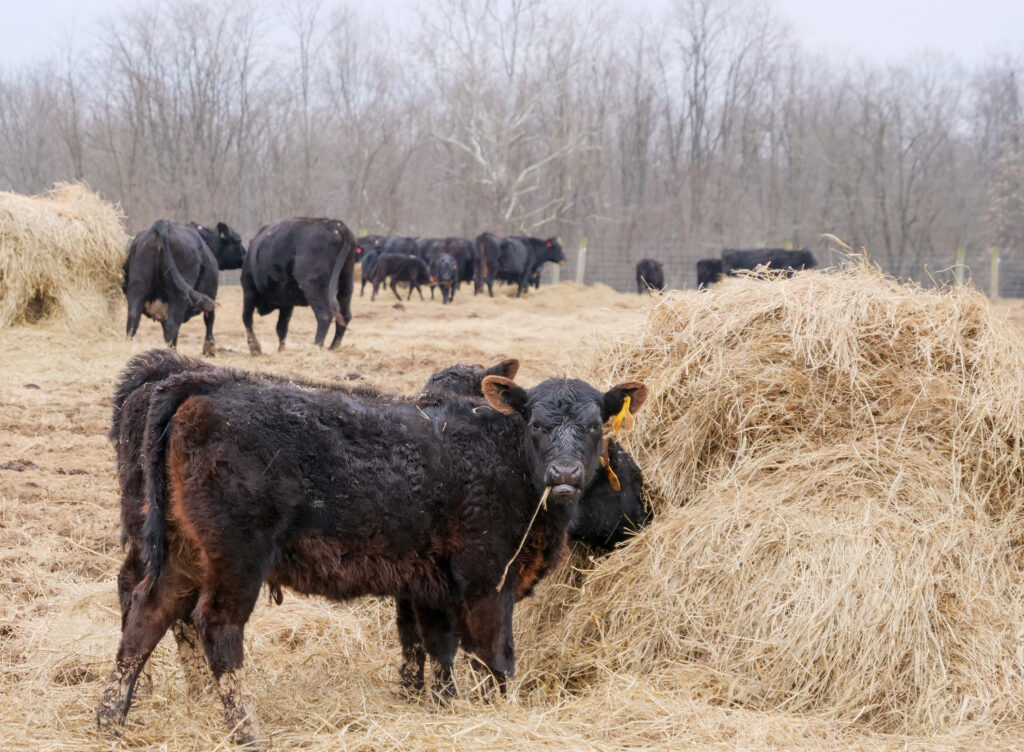
At Greenacres, we prioritize organic methods, avoiding chemical or imported fertilizers. Instead, we rely on bale grazing, coupled with animal impact, to enhance soil health and fertility throughout our pastures. Each year, we identify the field with the lowest fertility and target it for bale grazing over winter. This targeted approach gradually raises the fertility of our entire farm, as different fields are used for bale grazing annually. Following winter bale grazing, we plant a summer cover crop and transition to a perennial pasture mix in the fall, ensuring continuous improvement and sustainability in our grazing practices.
For more detailed information on bale grazing, you can refer to the University of Kentucky’s comprehensive paper available here.
Starting Seeds in the Greenhouse
Winter in our greenhouse is a flurry of activity! While the cold reigns outside, inside, we’re nurturing the seeds of spring. From vibrant blooms to crisp veggies, our garden crew is busy creating a thriving oasis for these growing plants. Our dedicated team ensures each seedling gets the perfect blend of light, warmth, and moisture. It’s a labor of love, but watching these tiny seeds grow into resilient plants makes it all worthwhile. Soon, they’ll be ready to bring color and vitality to our gardens as we transplant them outside.
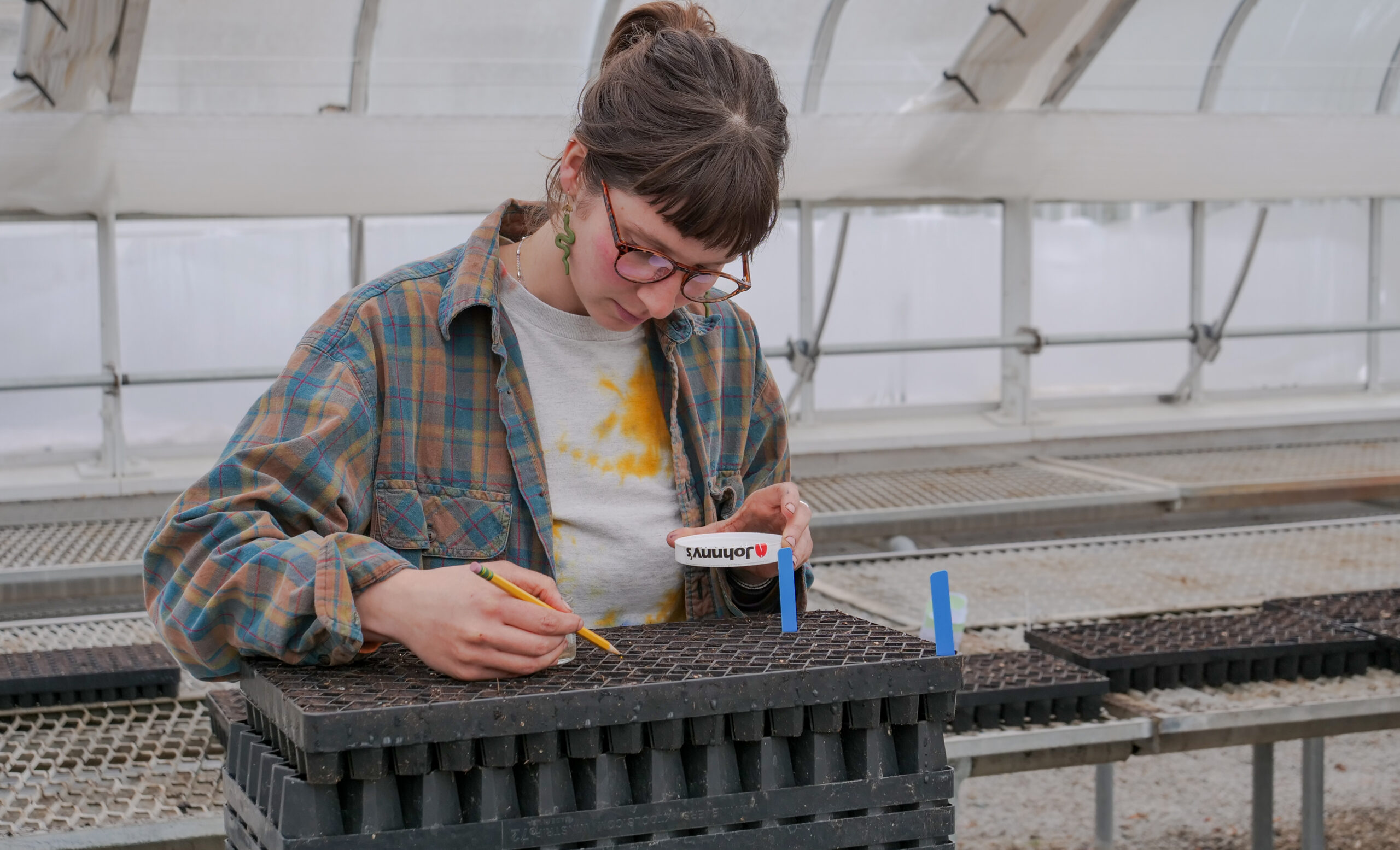
Greenacres Education in Lewis Township
We recently completed our first Maple Season at Lewis Township, where we hosted scores of students from local schools and held two community days where all delighted in the joy of maple syrup production in our new Sugar Shack.
We offer a cornucopia of different educational opportunities for K-12 learners, which are all free of charge for all schools in Brown, Adams, and Clermont counties. If you have a student in a local school district, please contact us and we will get them booked! Our objective is to bring learning standards to life in the Arts, Environment, and Agriculture.
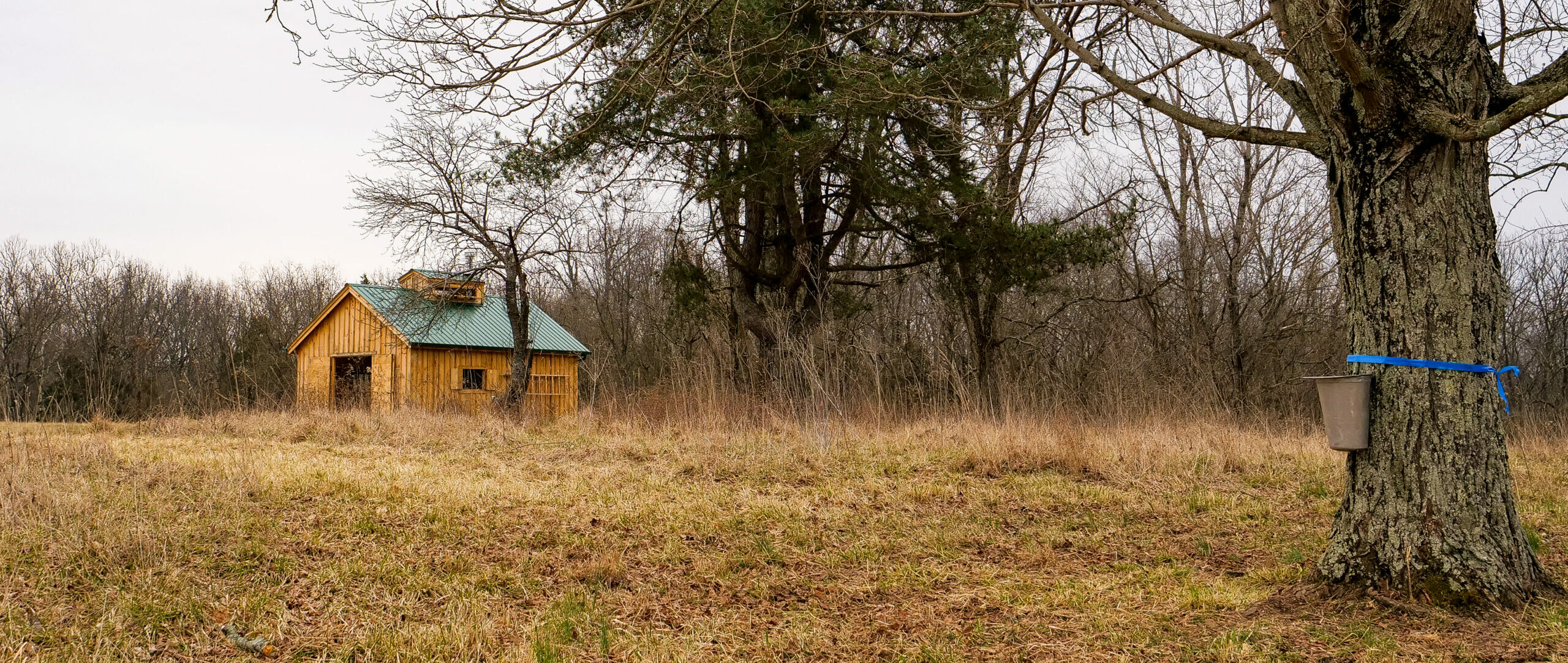
Exploring with Grace Equine Series
This winter, the equine department launched an Exploring With Grace Equine Series partnering with Oyler School and Adventure Crew. The Oyler School students participated in a 6 part series, the Adventure Crew a 3-part series, where they learned about daily equine care, equine anatomy, handling of horses, and more! The students started the series with little to no horse experience but their equine skills developed over the weeks, leading them to confidently and independently guiding the horses through obstacle courses and ending with a bareback ride. The Greenacres equine team greatly enjoyed these series, and after extremely positive feedback from the groups and students, we have added additional Exploring With Grace Equine Series programming that will run throughout the year.
Our Pony Club riders participated in the winter session, sharpening their mounted skills and broadening their unmounted skills. The Pony Club riders will compete in Pony Club Quiz, an entirely unmounted educational competition. The riders will compete at their respective levels being tested on skills and knowledge such as horse management, tack and equipment, and safety and rules. Our riders have been studying hard with the goal of a competitive finish! Greenacres Equine Center enrolls riders between the ages of 8-18. Our lessons are English only with a focus in Eventing. Due to extremely high demand, our waitlist is currently closed while we move riders off the list.
School Horse Spotlight
Pineapple, or more affectionately known as “Ms. P”, is a palomino pony mare, and a fan favorite! She excels with the young or nervous students as her calm, and often sleepy demeanor, helps settle the nerves of timid students. Because of this, she was a favorite amongst the Exploring With Grace students! She can often be found falling asleep while being groomed and loves having her mane and forelock braided by the students.
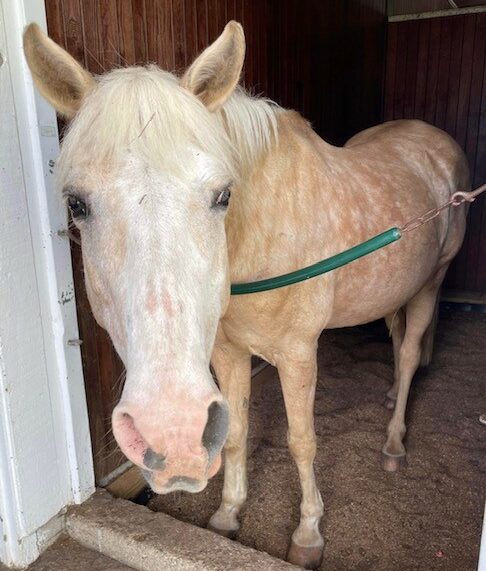
Winter Events at the Arts Center
The Greenacres Arts Center was filled with a wide range of guests this winter as we hosted two major events. On February 19th and 20th, the Heart of America Grazing Conference was held onsite where over 90 guests had the opportunity to learn from industry experts. Guest speakers included Dan Glenn from Deep Grass Graziers Farms, meat science expert Lyda Garcia, retired physician, grass-fed beef farmer, and owner of White Clover Farm Jim Linne, and even our very own Chad Bitler, one of the brains behind our groundbreaking research. From cattle genetics to the art of direct-to-consumer marketing, no topic was left ungrazed!
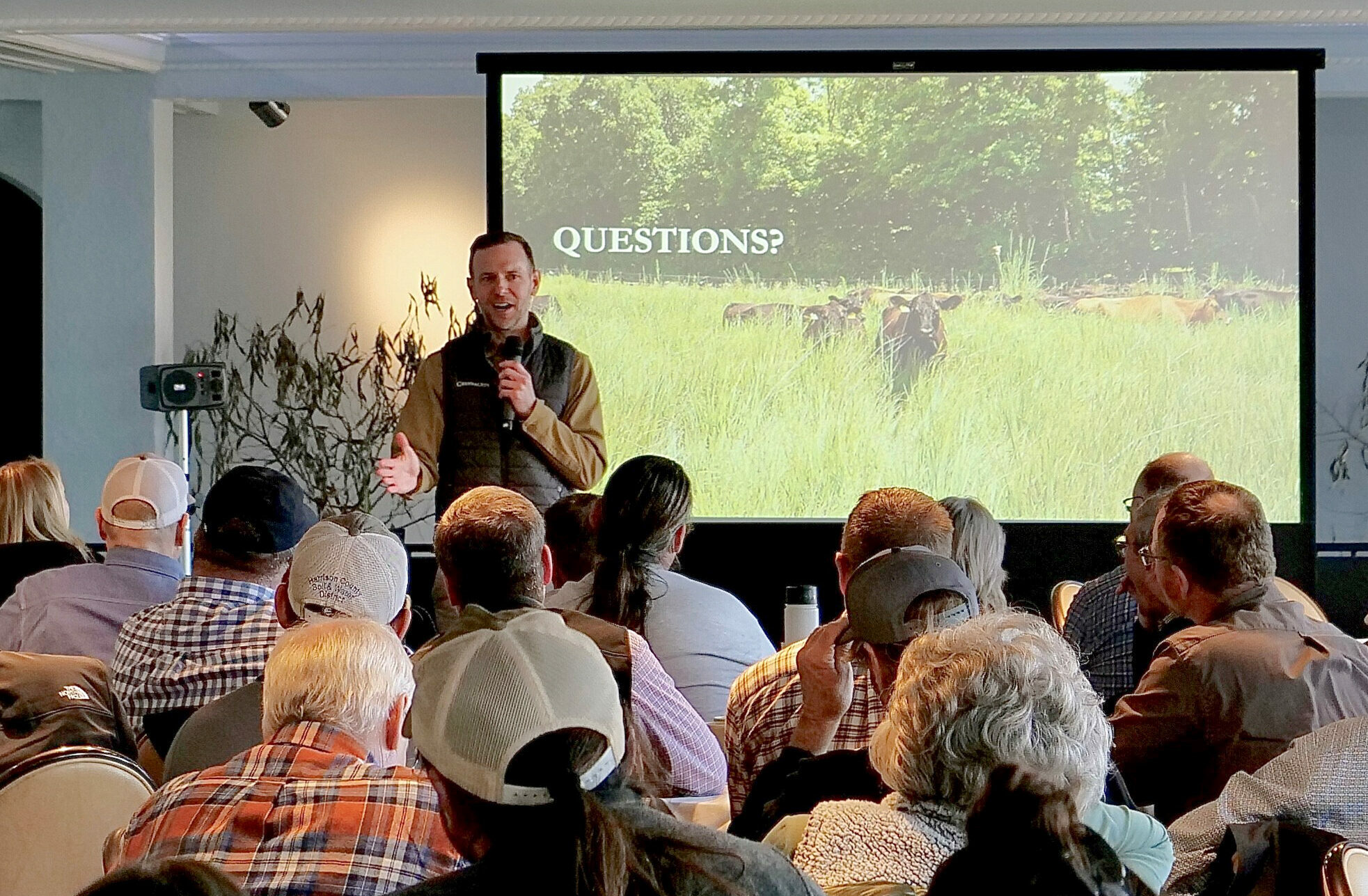
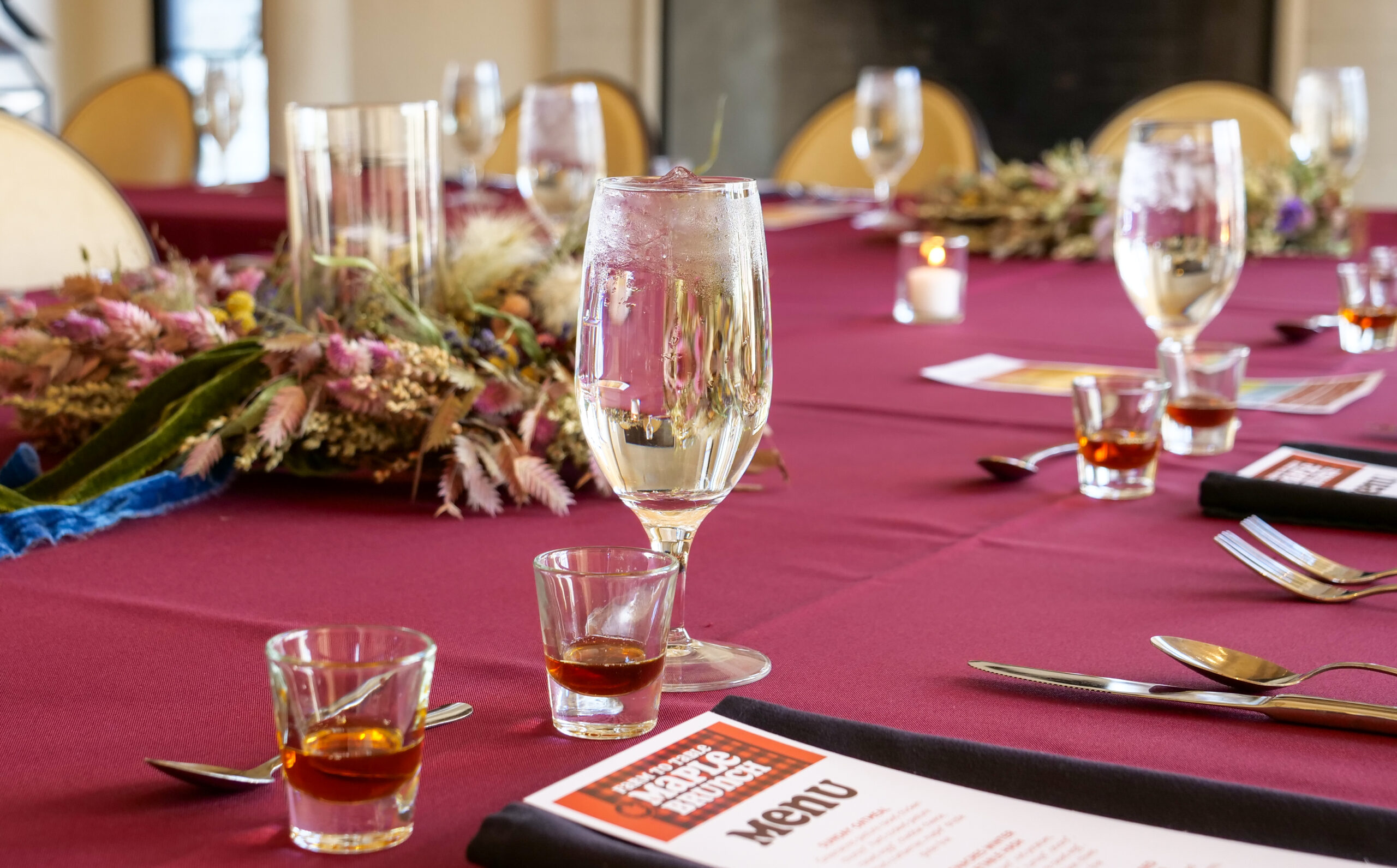
Then, on February 25th, we transformed the Arts Center into a culinary haven for our farm-to-table brunch, starring Greenacres Maple Syrup. Guests were treated to 4 delicious courses prepared by Chef Renee Schuler and the Eat Well team, showcasing the best of Greenacres meat and produce. As attendees indulged in each mouthwatering bite, our education team wowed them with tales of our maple field trip adventures and the sweet secrets of syrup production. We’re already counting down the days until our next Farm to Table extravaganza in July!

